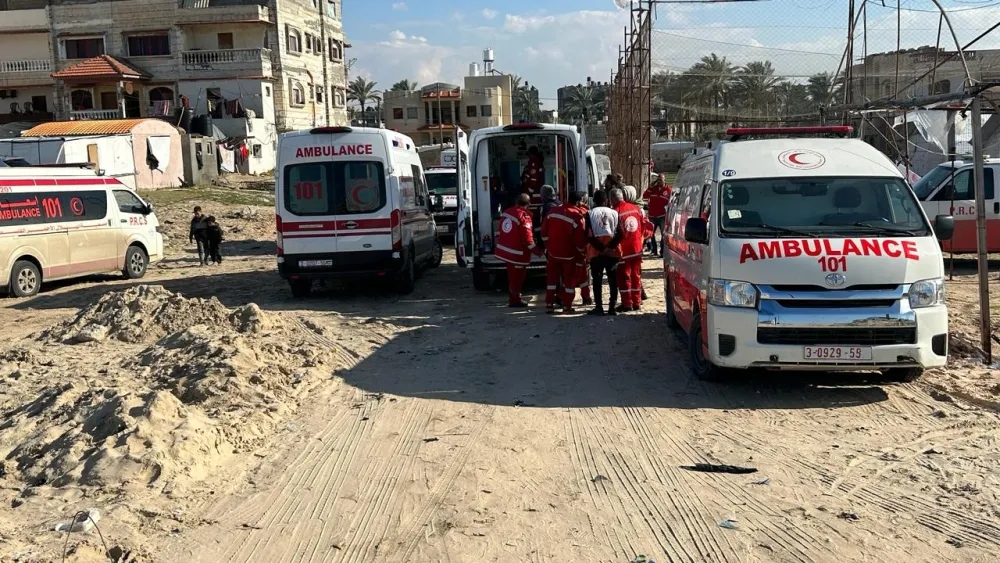Tensions Mount as Rafah Braces for Potential Israeli Assault
Amid Cease-Fire Setback
The looming specter of conflict cast a pall over Rafah as
Israeli military directives instructed Palestinians in the eastern precincts of
the Gaza Strip to evacuate in anticipation of an imminent ground offensive. The
directive conveyed through a combination of fliers, phone calls, messages, and
media broadcasts in Arabic, came as hopes for a respite in the seven-month
Israel-Hamas conflict dwindled once more over the weekend.
Swiftly, residents of eastern Rafah embarked on a mass
exodus, utilizing whatever means available to seek safety. Reports of Israeli
airstrikes targeting eastern Rafah emerged shortly after the evacuation order,
though the military refrained from immediate confirmation of these strikes on
the densely populated city.
Despite concerted last-minute diplomatic endeavors
spearheaded by the U.S., Qatar, and Egypt to broker a renewed cease-fire
agreement, these efforts appeared to falter by Sunday. Both Israel and Hamas
traded blame for the impasse, culminating in a lethal rocket assault by Hamas
on an Israeli military checkpoint near a pivotal border crossing between Israel
and Gaza.
President Biden, persistently advocating for restraint,
reiterated his stance to Israeli Prime Minister Benjamin Netanyahu in a
half-hour-long phone call on Monday. The White House underscored Biden's
unwavering position regarding Rafah in its statement on the call.
Ahead of a potential ground offensive, the Israel Defense
Forces (IDF) anticipated evacuating up to 100,000 individuals from eastern
Rafah. Residents were directed to relocate north-westward to the al-Mawasi area
on Gaza's Mediterranean coast, where humanitarian assistance had been arranged,
including essential supplies and a field hospital.
Despite earlier hopes of a diplomatic breakthrough to secure
the release of Israeli hostages and forestall a Rafah offensive, the IDF's
preparatory measures indicated readiness for such an operation following the
Hamas attack on the Kerem Shalom border crossing.
The fatal rocket strike launched by Hamas from eastern Rafah
on Sunday, which claimed the lives of four IDF soldiers and left several others
wounded, intensified tensions. While the IDF refrained from explicitly linking
the evacuation order to the Kerem Shalom attack, Hamas decried it as a perilous
escalation by Israel, warning of repercussions.
Echoing Hamas's sentiments, unnamed Hamas officials hinted
at potential withdrawal from negotiations for another hostage release and
cease-fire in response to the evacuation order.
Israeli Defense Minister Yoav Gallant, addressing IDF troops
in Gaza, voiced skepticism about Hamas's commitment to a cease-fire, hinting at
an impending military operation in Rafah and other locations across the strip.
For the hundreds of thousands of Palestinians seeking refuge
in Rafah, many displaced multiple times, uncertainty and fear loomed large.
With the scale of devastation in Gaza already staggering, concerns mounted
about the feasibility of evacuating civilians ahead of a potential offensive,
prompting impassioned pleas from international quarters to avert catastrophe.
As tensions escalate and international pressure mounts, the spectre
of conflict casts a shadow over Rafah, underscoring the urgency for diplomatic
intervention to prevent further bloodshed and alleviate the suffering of
civilians caught in the crossfire.










